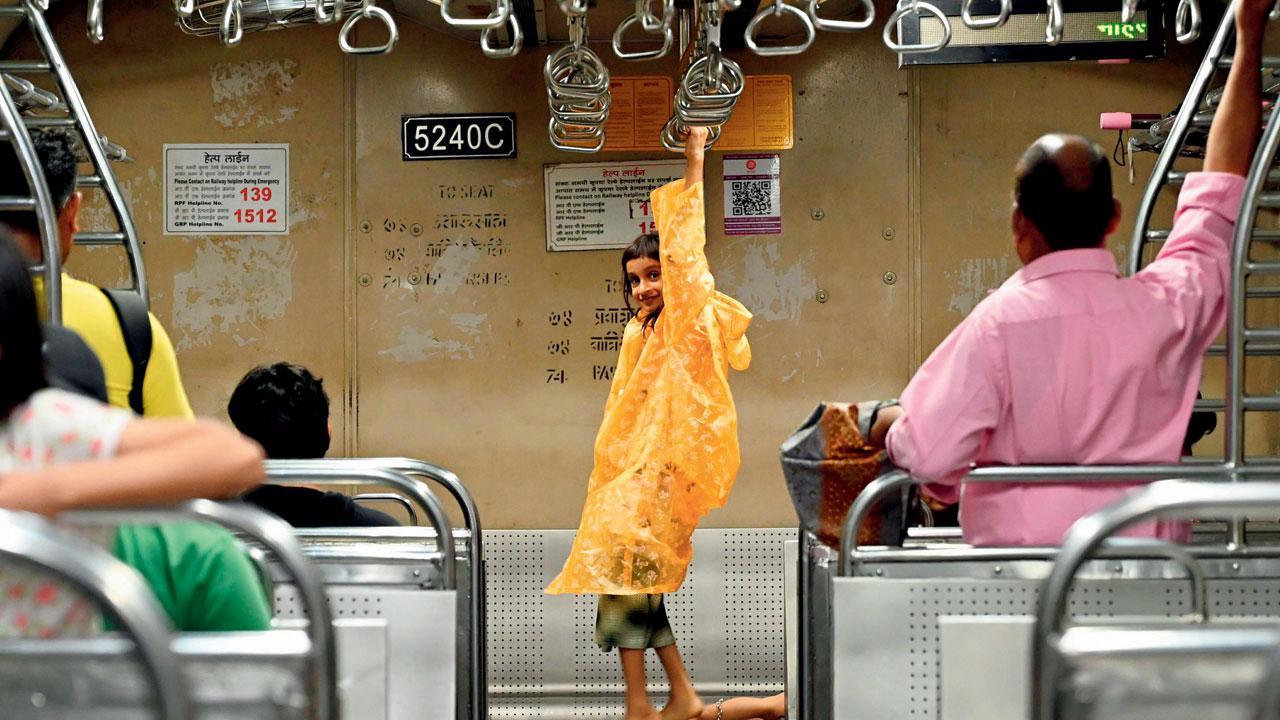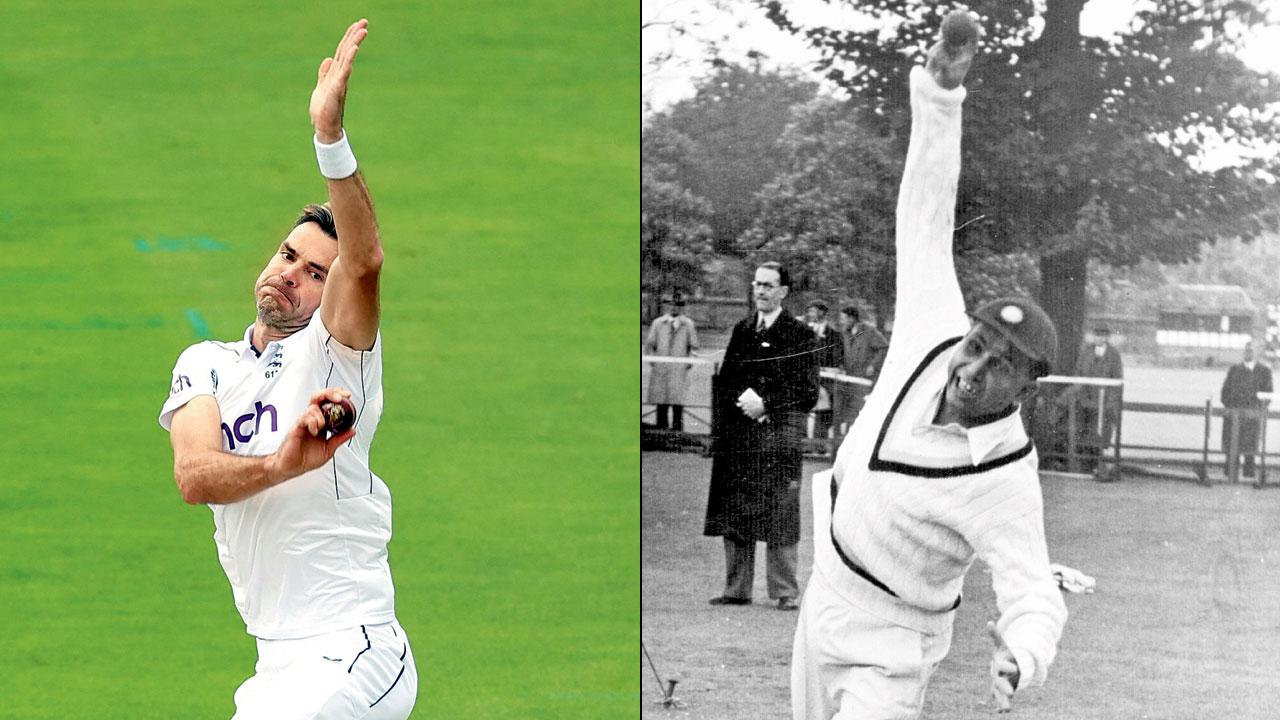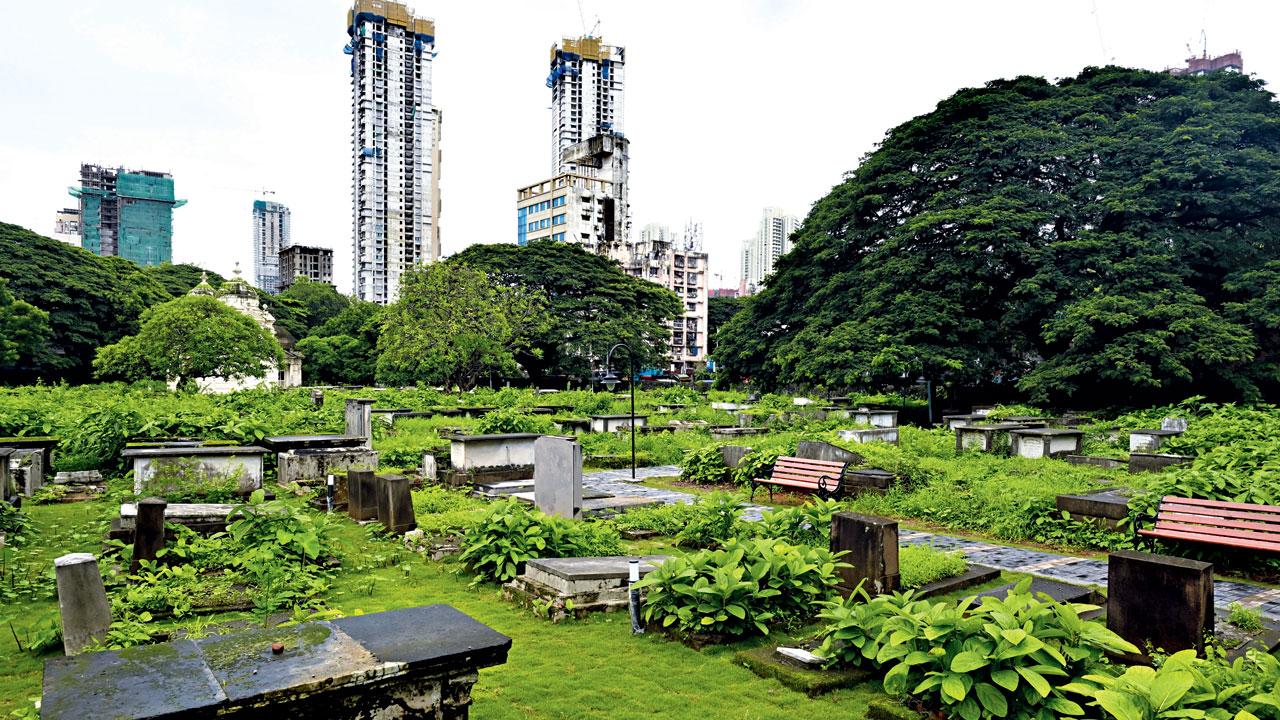The city - sliced, diced and served with a dash of sauce

Pic/Satej Shinde
An orange raincoat, an envious grip!
ADVERTISEMENT
A little girl swings from the overhead handles in a vacant local, just before alighting at Kandivali station.
High five for women in mythology
For Mumbai author Koral Dasgupta, it’s been a bittersweet release of her book, Tara—the fifth and final instalment in her Sati series, which re-examines the portrayal of women in Indian mythology. “I’ve lived a five-year dream with this series,” says Dasgupta, whose latest draws from the Ramayana to explore the tale of Tara, queen of Kishkindha and wife of monkey king Vali and, later, his brother Sugriva. The book showcases Tara’s rise from obscurity to a sharp stateswoman in her own right.

Koral Dasgupta at a book signing
Dasgupta’s Sati series is known for turning the patriarchal interpretation of mythology on its head, and giving a strong voice to female characters. She also addresses how ideas of feminine “purity” have been misconstrued over the ages.
The heroines of each of the five books—Ahalya, Kunti, Draupadi, Mandodari and, now, Tara—are known as panch kanya, renowned for their purity. “In popular narrative, however, these women do not have just one partner. And yet, women have been judged harshly for this for centuries. So, the ‘traditional’ idea of a woman’s purity being related to their virginity or promiscuity is trash,” says Dasgupta.
With Tara, she had a novel challenge on her hands. “This is the only book written from animals’ perspective. It gave me the scope to understand animals’ sensitivity and also rediscover Vali as a wonderful but misunderstood character.”
Oh Lord’s, the heroics of Anderson and Amarnath
Last month, the world of cricket stayed glued to the action in the West Indies, where the T20 World Cup concluded with India winning their second ICC silverware in the shortest form of the game. This week, cricket-keen eyes turned to Lord’s in London, where England’s James ‘Jimmy’ Anderson played the last of his 188 Test matches.

Indeed, he was the toast of the spiritual headquarters of cricket when he walked out to field on Wednesday. Lord’s has been a great venue for England’s king of swing, who claimed five or more wickets in an innings on seven occasions there. A cricket nut we know was hoping for a fairy tale end to Anderson’s career in terms of a hat-trick, something Anderson could not accomplish in his decorated career. Had that dream come true, it would have been only the second Test hat-trick in 140 years at Lord’s; South Africa’s Geoff Griffin being the only one to do so, in 1960.
India’s Lala Amarnath could have bagged one there in 1946 after England’s Wally Hammond prevented the on-the-bounce triple strike after Amarnath had sent back the illustrious Len Hutton and Denis Compton in a spell that led to his 5-118 albeit for a lost cause. Meanwhile, let’s raise a toast to Anderson. No fast bowler has been as enduring in Test cricket.
When Becker visited cricket’s spiritual HQs

Each year, we see photographs of celebrities enjoying the game from the stands at the Wimbledon tennis championships. We saw images of cricket icons like Ben Stokes, Joe Root, and our very own Sachin Tendulkar watching the Championships at SW19. However, in 2007, three-time singles champion Boris Becker made it to Lord’s Cricket Ground to watch the opening Test match of the India v England Test series. This diarist remembers the German great stopping by at the media lounge en route to one of the corporate boxes. As expected, Becker was surrounded by journalists who wanted to know more about his cricket interests. One of them asked him if he would like a glass of red wine. He accepted the offer and had a refill. Those were the days!
126-year-old Jewish cemetery gets makeover
Lodged between the Chinchpokli railway station and the NM Joshi Marg, is a 126-year-old Jewish cemetery, which has recently undergone a restoration. The site is a resting place for the Jewish community from Baghdad as well as Holocaust survivors from Germany who found refuge in India en route to China. The project, led by landscape architect Ayushi Shah, marked the first initiative in the cemetery’s history. The German government funded 60 per cent of the project that cost of Rs 20 lakh.

A revamped part of the cemetery. Pics/Anurag Ahire
The rest was financed by the Israeli government. “The Jewish community instructed me not to disturb the sanctity of the graves, including preserving the shrubs growing on them,” Ayushi explains. “This was a unique challenge for me,” she added. The revamped cemetery now features a new pathway, lamp posts, and benches. Bollard lamps have also been installed in a section of the land parcel to light up the path.

The restoration took around three months. “Some civic workers were hesitant to work at the site and left work midway. For some, these are sacred spaces, while for others they are not,” the architect says. Asif Khan from Bihar, who is the caretaker of the space, says, “It is my chance to look after the departed who rest here in peace, amid all the chaos around in Mumbai.”
Flat at Malabar Hill@ Rs 1.8 lakh

Real estate prices sound right out of Believe it or Not
Love it, hate it, but you cannot ignore it. That is social media. One of the slices of history doing the WhatsApp rounds are sepia-toned images of Mumbai’s priciest real estate, Malabar Hill. These nostalgic nuggets are bit like old song remixes that come alive through a new medium. Here, there is no remix, but the medium is new, WhatsApp gives us a look at what Mumbai was half a century ago, and the pace of change for the megapolis. This particular message calls people’s attention to a 23-storeyed skyscraper (we call them towers now) under construction in the estate of the WIAA club ltd. The WIAA is now the Malabar Hill Club. The two-bedroom flats are at Rs 1,80,000 and three bedroom are at Rs 2,80,000 with a four bedroom duplex flats at Rs 3,70,000! The advertisement besides stating this is Bombay’s Most Distinguished New Address… also says that price also includes one covered car parking space!
 Subscribe today by clicking the link and stay updated with the latest news!" Click here!
Subscribe today by clicking the link and stay updated with the latest news!" Click here!







